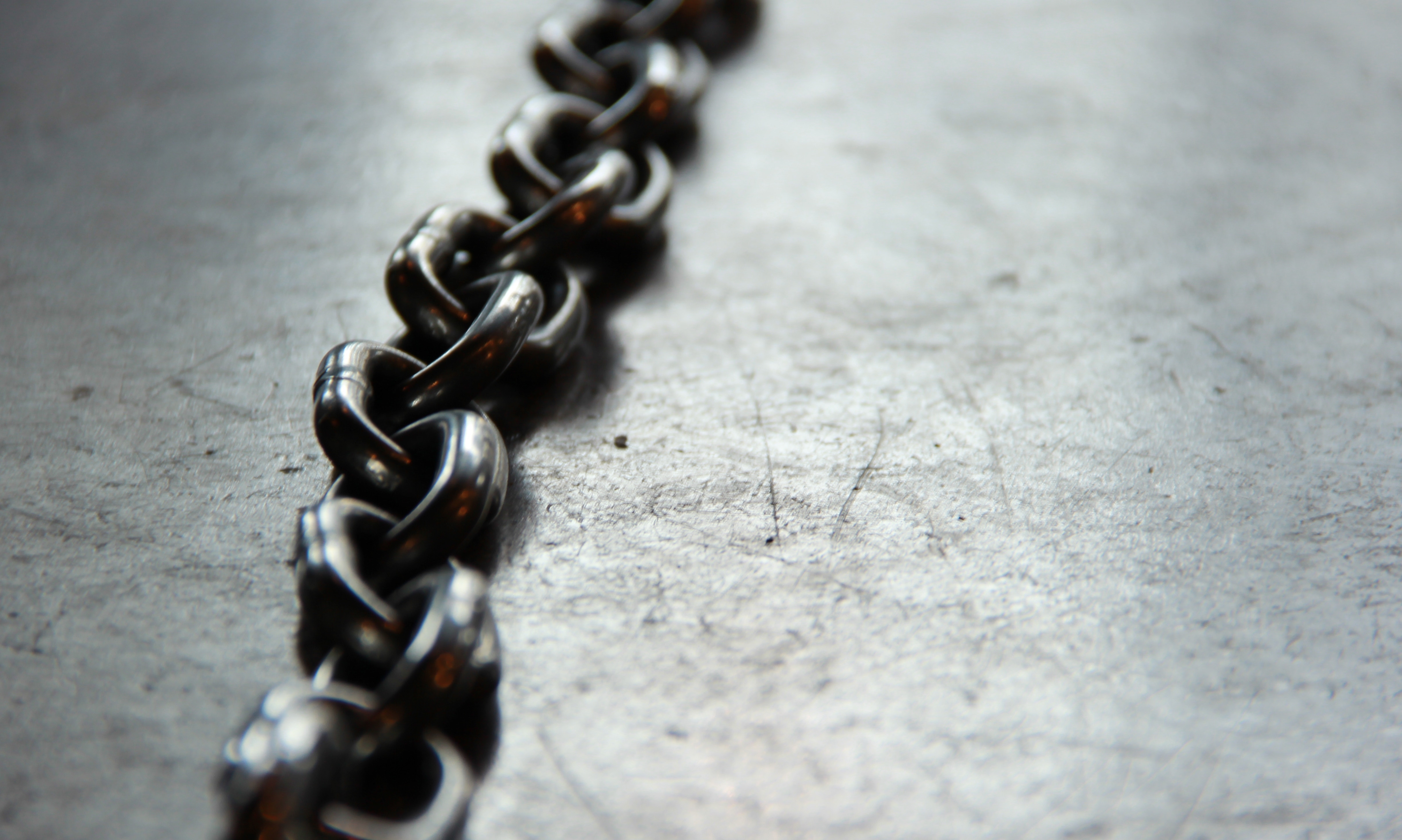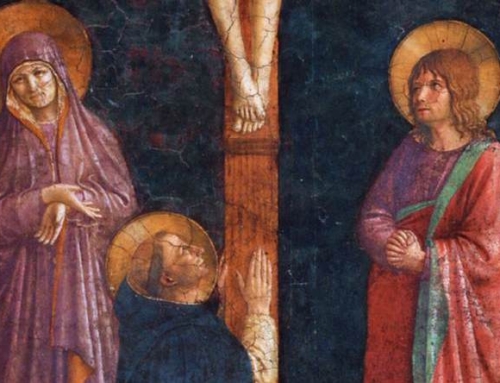Some chains are taken off and some are put on.
We hear in Scripture, “The Lord listens to the needy and does not spurn his servants in their chains” (Ps 69:33), and again, “He led them forth from darkness and gloom and broke their chains to pieces” (Ps 107:14). The Lord is the breaker of chains!
What, then, do we make of the Gerasene demoniac? The devil had come to possess this man, and his fellow townspeople had tried to bind him in chains in an attempt to control the devil. But, “no one was strong enough to subdue him” (Mk 5:4)—the devil easily made him destroy these bonds.
Does the devil offer the same freedom from bondage as the Lord? Assuredly not: it is a mirage that still leaves him bound. This false freedom is called license, and such a “freedom” only leads to “bruising” (Mk 5:5) of the soul.
Alone we can do nothing to bind the devil and come to true freedom. “No one can enter a strong man’s house to plunder his property,” Jesus tells us, “unless he first ties up the strong man” (Mk 3:27). The Gerasene demoniac was possessed: he had become the house for the strong man, the devil. He needed someone stronger than the strong man.
Thus says the Lord: Even the captives of the mighty shall be taken, and the prey of the tyrant be rescued, for I will contend with those who contend with you, and I will save your children. (Is 49:24-25)
Jesus looked on the possessed man with compassion, and then, as the Lord promised, he entered the strong man’s house. With his mighty word, he bound the devil and cast him out into a herd of swine. He then plundered the house—rather, he claimed the man for God and restored him to his right mind and right place at the feet of Jesus (Lk 8:35).
We, too, need Christ to break into our souls when we are bound by sin, when the strong man in his cunning has ensnared us in his chains. We seek in hope those effective words—“I absolve you from your sins”—that bind up the strong man and transform the soul.
Such transformation propels us into the great mystery of love. Those things that the devil attempts to use against us are recast in love for the salvation of our souls. Thus, we have saints who—in the face of the devil—freely choose to wear chains about their bodies. These are not chains of sin. They are “chains of love in which they allow themselves to be entrapped, so that they will love [God],” St. Alphonsus Ligouri writes (Office of Readings, Aug 1).
These chains of love come in various forms. For St. Dominic an actual iron chain adorned his waist as an act of penance. Acts of penance only come from intense love for souls. Desiring the salvation of every soul, like his savior Jesus Christ, St. Dominic lovingly chose to undergo significant pain as an offering for the forgiveness of sins.
You and I will most likely not don chains in such a way, but we can still consider other, lighter, chains of love. This is why we take on penances, or mortifications, during Lent. We love Jesus, and inspired by this love we seek to offer something alongside his offering on the cross for the salvation of our own soul and the souls of all sinners.
The devil uses chains to bind, but Christ breaks them. We use chains to love, and these Christ helps us carry.
✠
Photo by Kaley Dykstra







